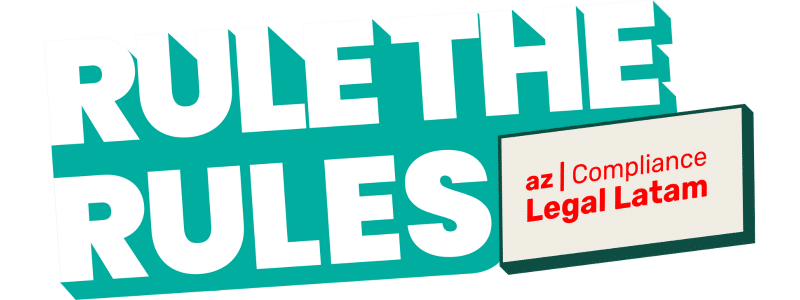Our Compliance Group Director, Francisca Franzani, spoke about the importance of promoting training and awareness of the risks associated with the new Economic Crimes Law.
A few days ago, the Economic Crimes Bill was approved with modifications by the Senate.
In this sense, and continuing with the usual procedure of any bill, it returned to the Lower House waiting to be approved within the next few weeks.
Although this bill seems to be a novelty, it is worth remembering that its origin dates back to an initiative after the social outbreak of October 18, 2019, with the purpose of toughening the penalties for the so-called “collar and tie crimes”, echoing the social requirements and the disagreement of many citizens who, within their demands, demanded changes in this matter. The proposal, in this sense, addressed both the strengthening of the penalties for these offenses, as well as the extension of liability to the legal person, which -to date- can only be exposed to a criminal conviction for the commission of a restricted catalog of a little more than thirty offenses.
After approximately three years of discussion, we are faced with a Bill that will imply a radical change in criminal matters and that, although it has been discussed at length in Congress, it brings more doubts than certainties as to whether we are really prepared for this great challenge.
As far as the legal person is concerned, during the last few years most of the large companies have been concerned about adopting compliance systems and crime prevention models, however, it is still not possible to say that this is a mandatory and crucial issue for companies, being relegated over other issues that seem to be more important.
Evidently, those that have chosen to have an effective, updated and transversal prevention system for all their collaborators, have managed to minimize their risks and position themselves at a higher level compared to their competitors in the industry, and have improved their processes, making them more efficient and less costly.
Although the number of convictions against the legal entity does not exceed ten, considering both those issued through abbreviated proceedings and oral trials – despite the fact that Law No. 20,393 came into force in 2009 – the truth is that this issue is far from being forgotten. Although it has been difficult to adapt to this different criminal prosecution, which aims to address the preventive insufficiency of individual liability through the punishment against legal persons, it is pertinent to ask ourselves whether or not we are really prepared to assume the profound change proposed by the Bill on Economic Crimes in this matter.
In effect, the bill not only proposes a considerable expansion in the catalog of crimes for which a legal person may be liable, going to a list that includes more than 100 different criminal types, but also toughens the penalties and eliminates benefits that are currently applicable to individuals who commit offenses on the occasion of their position within a business organization, leading to consequences of severe penalties and effective prison sentences with an infinitely narrower range of modifying circumstances.
These changes force us to answer certain questions, such as: will the prosecution agency have the capacity and resources to be able to exercise this broad prosecution? will companies be able to adapt their models to include each and every one of the risks to which they are exposed? will it be necessary to create a special unit in each Prosecutor’s Office in charge of the prosecution of legal persons? All these questions are not specifically addressed by the Project, despite the fact that it is only weeks away from being enacted.
The only certainty as of today is that it is essential that all companies, universities, municipalities, political parties, corporations and all active subjects exposed to this new regulation update their policies and controls, including those risks that, until now, were a different matter, since they were not included in the catalog of crimes of Law No. 20.393 and remained under a sanctioning-administrative sphere in the best cases, such as tax crimes, crimes against the financial market, crimes against free competition, among others.
It is essential that prior to the entry into force of the future law, which is expected to be within a year of its enactment, both the Public Prosecutor’s Office and the specialized police, and even the courts of justice, be previously trained by specialists in the field, in order to achieve the true spirit of the law, and not waste the few advances that have been made in the last 15 years in this area.
If the objective of the law is to systematize a series of crimes and put an end to the abuses committed by natural persons under the wing of the legal person and, in turn, increase prevention from a criminal perspective beyond administrative sanctions, efforts must be made so that we all collaborate with the implementation and enforcement of the law. This means that both companies and individuals must be committed to prevent and eradicate economic crimes. To this end, it is necessary to foster a culture of ethics and transparency in all areas, promote training and awareness of the risks associated with these practices, and establish effective supervision and control measures.




